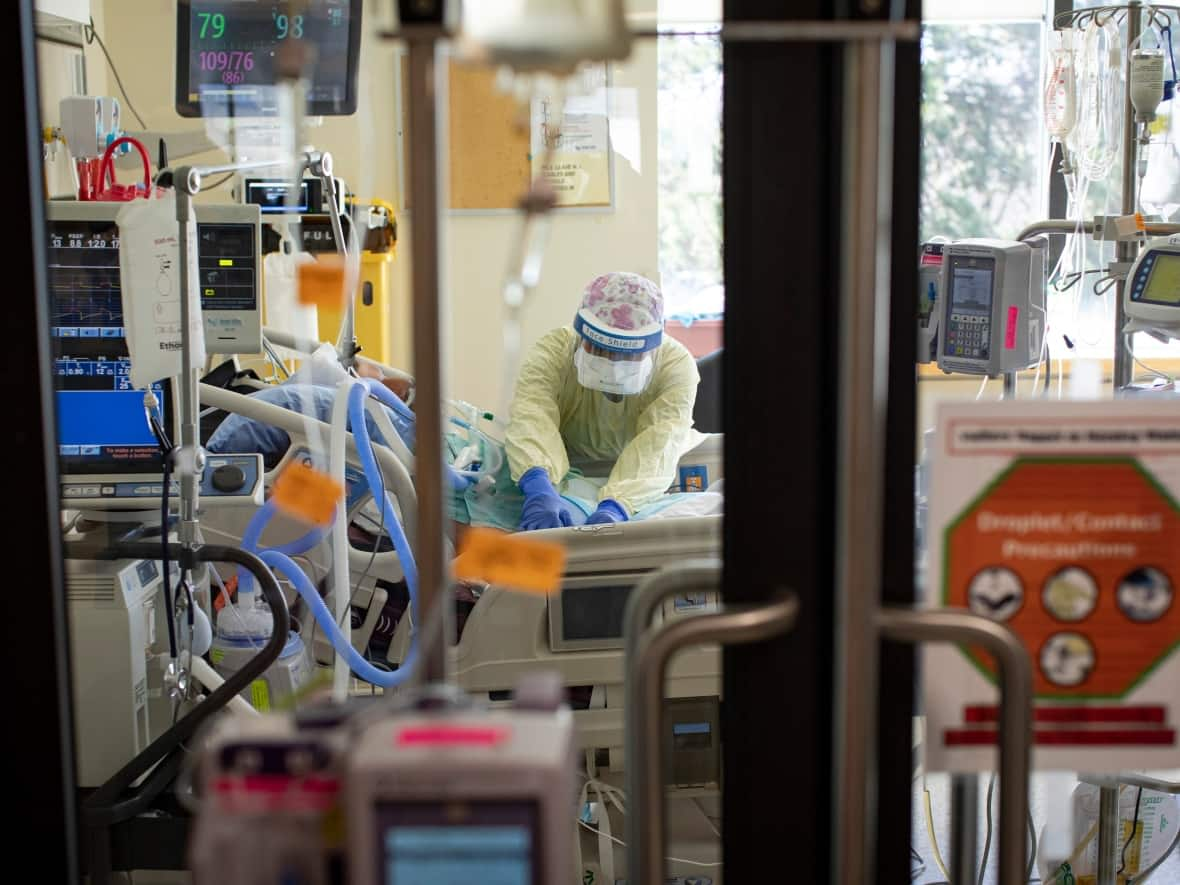'Significant staff shortage' forces ICU closure at Bowmanville Hospital

The intensive care unit at Bowmanville Hospital is set to temporarily close due to a "significant staff shortage," according to the hospital network in Durham Region, with services instead moving to nearby facilities.
The news comes as the Ontario Nurses' Association (ONA) says it has heard "very troubling reports" from members about impending closures and service cuts at 14 hospitals around the province over the coming long weekend.
In a statement Thursday, Lakeridge Health said the decision to relocated the ICU at Bowmanville Hospital "was not made lightly.
"We recognize the impact of this temporary relocation on patients and their families."
Critical care services will be consolidated at Ajax Pickering and Oshawa hospitals, the statement said.
"We continue to assess the situation regularly, with the goal of bringing back critical care services to the Bowmanville Hospital when staffing stabilizes, and it is safe to do so," it continued.
Lakeridge Health also noted that "many Ontario hospitals" continue to struggle with severe staffing shortages.
For the latest provincewide look at the pandemic follow the link below:
Ontario has already seen ER closures in some areas
The Listowel Wingham Hospital Alliance, which oversees a largely rural health network about 60 kilometres northwest of Kitchener, is implementing limited closures of several emergency departments over the long weekend.
"We regret the need to take this step and are working diligently to return to normal operations. We thank the community for their understanding," the organization said.
In its statement, the ONA did not name the 14 hospitals it expects to be impacted by staffing shortages over the long weekend, but the union did says its members are facing extremely difficult working conditions.
"We are outraged and alarmed about the growing impact the nursing shortage is having on patient care," said the ONA, which represents roughly 60,000 nurses and hospital workers across the province.
"These closures are not the fault of individual hospitals, they are a symptom of the provincewide neglect of our dedicated registered nurses and health-care professionals throughout the pandemic and before."
Critics says health minister needs to do more
CBC Toronto has requested an interview with Minister of Health Sylvia Jones. In an emailed statement, Jones said the government has been "working proactively" with hospital networks and unions to come up with short- and long-term solutions to the staffing crisis.
Jones said 10,500 health-care workers have been added to the system since the start of the COVID-19 pandemic in early 2020, and reiterated government promises to recruit 5,000 additional registered nurses and 8,000 personal support workers in coming years.
Jones has rarely spoken to the media since she was sworn in to the health minister role last month. Critics have been calling for her to take on a more public leadership role in discussing the crisis in province's hospitals and the government's planned response to it.
Those calls were repeated by the Opposition New Democrats on Friday amid news of the Ontario Nurses' Association's estimated closures.
"Where is Ontario's Health Minister Sylvia Jones?" health critic France Gelinas said in a written statement.
'This is an exhausted workforce'
Earlier this month, unions representing some 70,000 hospital workers in Ontario renewed calls the province to address staffing shortages that they said are caused by extreme burnout and low wages.
"This is an exhausted workforce, this is an anxious workforce. It's ground down by the pandemic, it's ground down by the lack of support it's had, and it needs to be supported now in order for it to come through for the people of Ontario," the Ontario Council of Hospital Unions said at the time.
Dr. Howard Ovens, who has worked in the emergency department at Mount Sinai Hospital in Toronto for 40 years, told CBC News that critical care services are at their breaking point.
"Our emergency departments are under more stress than I've ever seen in my career," he said earlier this summer.
Key factors driving the long wait times are largely spin-off effects of the pandemic:
High rates of staff calling in sick or unable to work because they've been exposed to COVID-19.
Patients whose illnesses are more severe, often because they delayed seeking treatment during the big pandemic waves.
Hospital wards filled to capacity by trying to catch up on backlogged surgeries and procedures, so that it's a challenge to squeeze in ER patients who need to be admitted.
This comes on top of long-standing issues in the system that extend well beyond the doors of the emergency room, including discharge bottlenecks caused by a shortage of long-term care spaces and home-care support.


